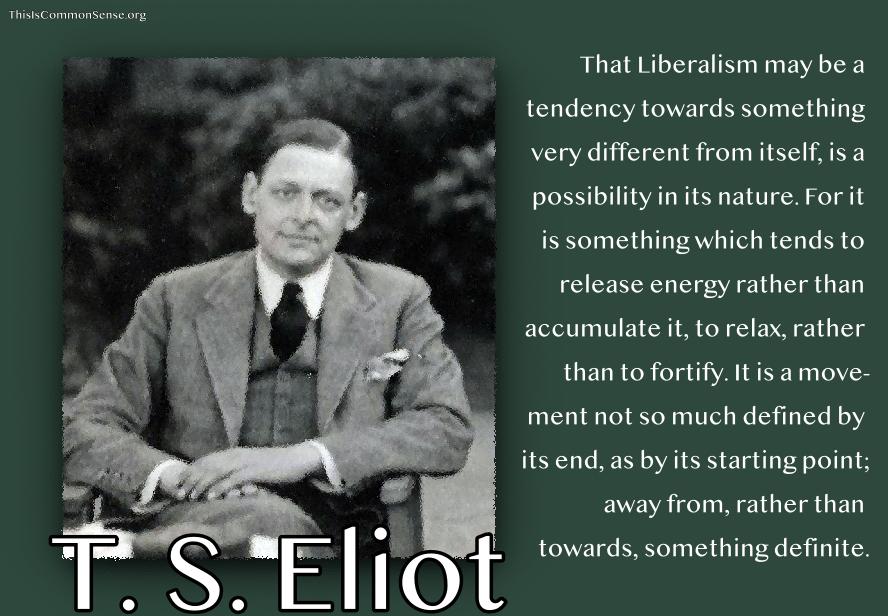That Liberalism may be a tendency towards something very different from itself, is a possibility in its nature. For it is something which tends to release energy rather than accumulate it, to relax, rather than to fortify. It is a movement not so much defined by its end, as by its starting point; away from, rather than towards, something definite. Our point of departure is more real to us than our destination; and the destination is likely to present a very different picture when arrived at, from the vaguer image formed in imagination. By destroying traditional social habits of the people, by dissolving their natural collective consciousness into individual constituents, by licensing the opinions of the most foolish, by substituting instruction for education, by encouraging cleverness rather than wisdom, the upstart rather than the qualified, by fostering a notion of getting on to which the alternative is a hopeless apathy, Liberalism can prepare the way for that which is its own negation: the artificial, mechanised or brutalised control which is a desperate remedy for its chaos.
Thomas Stearns Eliot, The Idea of a Christian Society (1939), Ch. I, pp. 15 – 16.
Categories
T. S. Eliot
